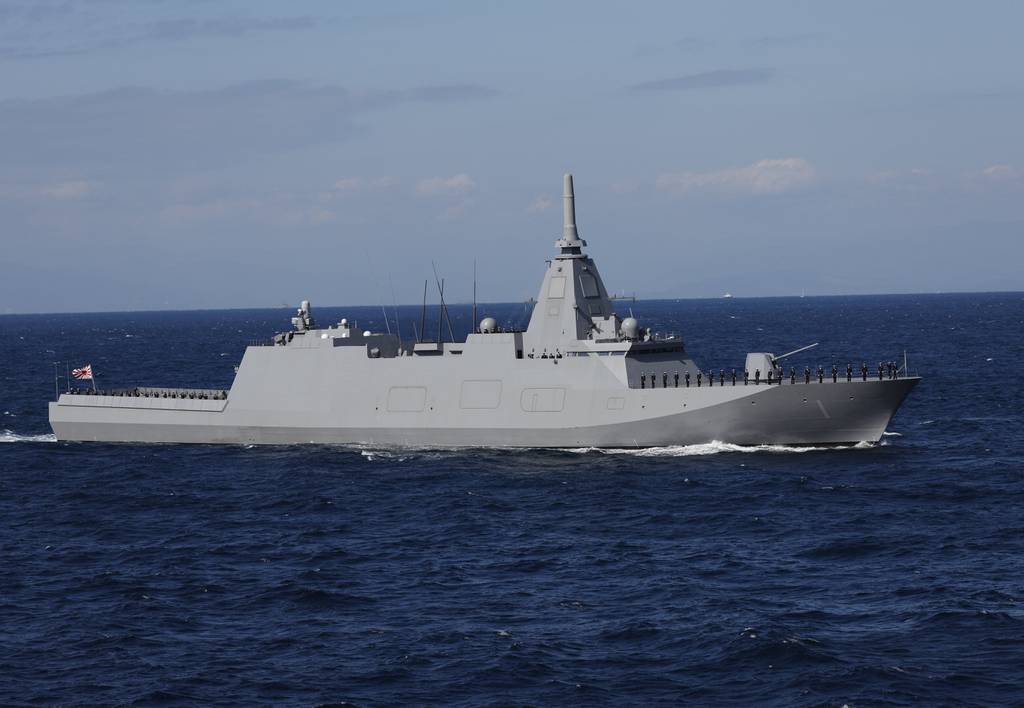
MELBOURNE, Australia — Japan’s Defense Ministry has requested another record defense budget, with the agenda featuring naval vessels, F-35 fighter jets, hypersonic weapons development and armored vehicles.
The ministry announced Aug. 31 that it submitted a request for $52.9 billion to the Finance Ministry for the coming fiscal year, which starts April 1, 2024. The dollar figure continues a decade-long trend of record defense budgets as Japan continues its modernization drive in the face of North Korea’s missile threat and China’s growing military might.
The request, which was only published in Japanese, features acquisition efforts, research programs and upgrades for Japan’s self-defense forces across several domains of warfare. It is now up to the Finance Ministry to approve the budget.
At sea
Equipment requests for the Japan Maritime Self-Defense Force stands out in this year’s budget request. According to the document, the ministry wants $2.6 billion for a pair of Aegis system-equipped vessels to bolster ballistic missile defense capabilities.
The request also provides more information about the two ships, which will be 190 meters (623 feet) long and displace 12,000 tons. They will be include 128 vertical launching system cells for ballistic missile interceptors, as wel as launchers for the indigenous Type 12 anti-ship, land-attack missile.
Construction of the first ship will begin in 2024, with commissioning planned for 2027. The second vessel is to join the maritime service the following year.
Japan will also start construction of a new class of frigates from 2024, with a request of $1.2 billion for two vessels. The 12 new ships are to be based on the current Mogami class of frigates, according to the Acquisition, Technology and Logistics Agency, and will incorporate lessons learned from the existing Mogami class.
Plans include extending the ships’ length to 142 meters from 133 meters, reworking internal spaces, and equipping the ships with Type 12 missiles that will bring their displacement to 4,900 tons.
Missiles and hypersonic weapons
Japan is taking a multiprong approach to developing its standoff attack capabilities, with the budget requesting funds for continued research into the land-based, truck-launched Type 12 missile to increase its range so it can strike targets 1,500 kilometers (932 miles) away. Japan is also working to expand the weapon’s launch methods to include shipboard and aircraft-launched variants.
The U.S. ally is also continuing to invest in the development of hypersonic weapons, with concurrent programs into developing a high-velocity glide projectile and a hypersonic missile.
It is also continuing efforts to buy standoff weapons from abroad, with the budget request seeking the Joint Strike Missile made by Norwegian firm Kongsberg Defence and Aerospace, and the AGM-158 Joint Air-to-Surface Standoff Missile made by U.S. defense giant Lockheed Martin.
Aviation
Those two foreign missiles will equip the Lockheed Martin F-35 fighters and upgraded Mitsubishi F-15J Eagle interceptors with the Japan Air Self-Defense Force, respectively.
The budget request asked for $739.3 million to acquire eight F-35A conventional-takeoff-and-landing variants as well as $862.3 million for seven F-35B short-takeoff-and-vertical-landing versions.
The Defense Ministry also wants funds to upgrade the service’s existing F-15J and F-2 fleets, with a request to upgrade eight F-2s for $83 million that will see them gain the ability to fire the air-launched Type 12 missile currently under development.
By land
The request is also seeks funding for the Japan Ground Self-Defense Force to acquire more combat vehicles and self-propelled artillery systems.
The ministry is asking for $561 million to buy 24 wheeled infantry fighting vehicles, eight self-propelled mortars, 19 Type 16 maneuver combat vehicles, 10 Type 10 main battle tanks, and 16 155mm Type 19 wheeled self-propelled howitzers.
It is also asking for $215.4 million to procure 28 AMV wheeled armored personnel carriers from Finland’s Patria, which won a competitive tender in December 2022.
Mike Yeo is the Asia correspondent for Defense News.

